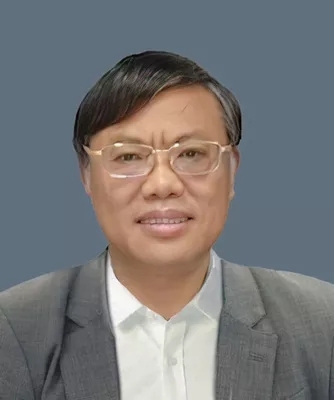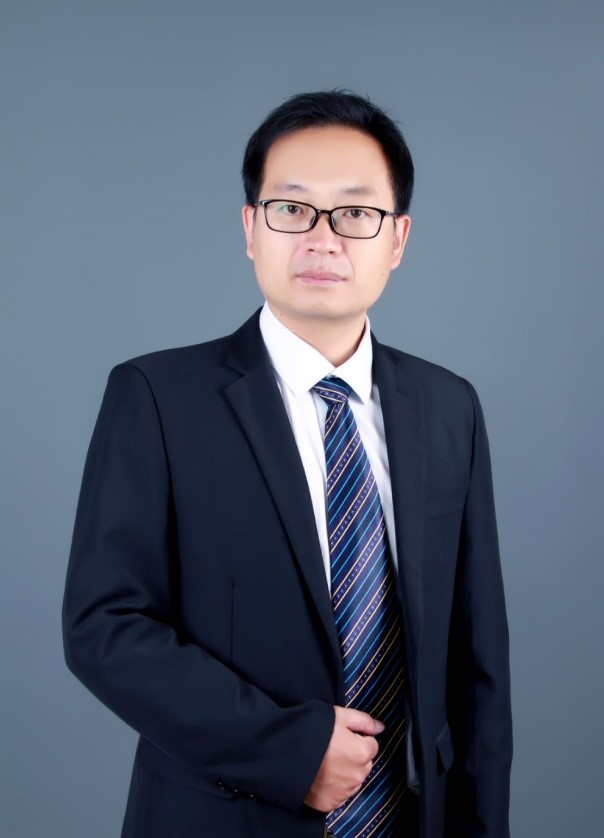

Prof.Deshuang Huang (IEEE/IAPR/AAIA Fellow)
Eastern Institute of Technology, China
Biography: De-Shuang Huang, PhD/Professor, PhD Advisor, Eastern Institute of Technology, Ningbo, China. The Recipient of“Hundred Talents Program of Chinese Academy of Sciences”in 2000, Chief Scientist (Host) for National Science and Technology Innovation 2030 New Generation AI Major Project, Management Expert for National Science and Technology Innovation 2030 - Brain Science and Brain like Research Major Project, Member of the 14th Expert Review Team of National Natural Science Foundation of China. Active Member of Academy of Science of New York, Fellow of Institute of Electrical and Electronics Engineer (IEEE Fellow), Fellow of International Association for Pattern Recognition (IAPR), Fellow of the Asia-Pacific Artificial Intelligence Association (AAIA), Member of China Award Committee of ACM SIGBIO. Program Committee Chair of the 2014 11th IEEE Computational Intelligence in Bioinformatics and Computational Biology (Honolulu, USA), General Chair of the 2015 International Joint Conference on Neural Networks (Killarney, Ireland), Founder & Chairman of International Conference on Intelligent Computing (successfully and consecutively organized for 19 years, EI & CCF C indexed conference), Director of Biomedical Data Mining and Computing Professional Committee of China Bioinformatics Society, Vice Director of Bioinformatics Professional Committee of China Computer Federation.Up to present, his Google Scholar citation number is over 23100 times, and H index 80. He is associated editors of IEEE/ACM Transactions on Computational Biology & Bioinformatics and IEEE Transactions on Cognitive and Developmental Systems, etc.He was selected as the one of Highly Cited Chinese Researchers List for Scopus Database of Elsevier (Computer Sciences Edition) from 2014 to 2022. He published 3 monographs and edited 63 conference proceedings. The one of his three monographs won the the Second-Class Prize of the 8th Excellent High Technology Books of China in June 1997. In addition, he also won the First-Class Prize in Natural Science of Anhui Province of China in 2010, the First-Class Prize in Natural Science of Ministry of Education of China in 2016 and the First-Class Prize in Wu Wenjun Award for Advancement of Artificial Intelligence Science and Technology of China in 2018. Up to now his 35 patent of inventions or utility model patents were authorized in China, 1 one was authorized in USA and 2 ones authorized in Japan. He was also authorized in software copyright for 7 projects. As Guest Editor, he edited 31 Special Issues in 14 kinds of journals.

Prof.Guandong Xu (IET FELLOW, ACS fellow)
University of Technology Sydney, Australia
Biography: Dr Guandong Xu is a Professor in the School of Computer Science and Data Science Institute at UTS and an award-winning researcher working in the fields of data mining, machine learning, social computing and other associated fields. Guandong is the Director of the UTS-Providence Smart Future Research Centre, which targets research and innovation in disruptive technology to drive sustainability. His research has attracted funding of more than $8 million from the ARC, government and industry. He also heads the Data Science and Machine Intelligence Lab, which is dedicated to research excellence and industry innovation across academia and industry, aligning with the UTS research priority areas in data science and artificial intelligence. Guandong has had more than 240 papers published in the fields of Data Science and Data Analytics, Recommender Systems, Text Mining, Predictive Analytics, User Behaviour Modelling, and Social Computing in international journals and conference proceedings in recent years, with increasing citations from academia. He has won numerous awards, including the Digital Disruptors Winner for ICT Research Project of the Year, Australian Computer Society (2021), the eBay's Leaders' Choice Award (2021); the CIKM'2021 Conference Best Research Paper Finalist; Global Efma-Accenture Insurance Innovation Award in Workforce Transformation (2020); the Digital Disruptors Winner for Skills Transformation of Small Work Teams, Australian Computer Society (2019), and the Digital Disruptors Gold Award of Service Transformation for the Digital Consumer – Corporate by Australian Computer Society (2019); the Top 10 Analytics Leaders by Australian Analytics Professional Peak Body (2018); the Australasian Database Conference Best Student Paper Award (2018); Marketing Excellence Award in Customer Research, NSW (2017), and; the Big Insights Data Innovation Award in Customer Insights (2016). He has shown strong academic leadership in various professional activities. He is the founding Editor-in-Chief of Human-centric Intelligent Systems Journal, the Assistant Editor-in-Chief of World Wide Web Journal, as well as the founding Steering Committee Chair of the International Conference of Behavioural and Social Computing Conference. Guandong has an MSc and a BSc in Computer Science and Engineering, and a PhD in Computer Science. After holding various research positions at European and Australian universities, he joined UTS in 2012. He was elected as the Fellow of Institution of Engineering and Technology (IET), UK and the Fellow of Australian Computer Society (ACS) in 2021 and 2022.

Prof. Baochang Zhang
Beihang University, China
Biography: Baochang Zhang is a professor at Beihang University and an academic advisor of the Deep Learning Lab of Baidu Inc., Beijing, China. He received the B.S., M.S., and Ph.D. degrees in computer science from the Harbin Institute of Technology, Harbin, China, in 1999, 2001, and 2006, respectively. From 2006 to 2008, he was a Research Fellow with the Chinese University of Hong Kong, Hong Kong, and Griffith University, Brisbane, QLD, Australia. He was a Post-Doctoral Fellow with the Italy Institute of Technology, Genoa, Italy, from 2014 to 2015. His research interests include deep learning, pattern recognition, object recognition and tracking, and wavelets with about 200 high-quality papers published on top-tier journal/conference, such as IJCV, TPAMI, CVPR, NeurIPS, ICCV.

Prof. Weishan Zhang
China University of Petroleum, China
Biography:Weishan Zhang is a full professor at the School of Computer Science and Technology, China University of Petroleum (East China). He is the director of the Shandong Province Credible Artificial Intelligence Ecology Laboratory, Vice Chairman of the Federation Data and Federation Intelligence Committee of the China Association of Automation, and Chairman of the Qingdao Artificial Intelligence Society. He holds a bachelor, master, and doctoral degree from Northwestern Polytechnical University, and have worked at the National University of Singapore, Tongji University, University of Carlton in Canada, and Aarhus University in Denmark.His research focuses on big data intelligent processing, trustworthy artificial intelligence, and neuromorphic intelligence. He has published nearly 200 related papers and have been granted nearly 20 invention patents. He serves as an Associate Editor for IEEE Transactions on Intelligent Vehicles, as well as a guest editors for top journals such as IEEE Internet of Things and IEEE Transactions on Computational Social Systems. He is the PI for a series of projects such as the National Natural Science Foundation of China, and cooperated deeply with Haier Group, Aerospace Science and Industry, China Electric Power, China National Petroleum Corporation, and other units.For the excellent contributions to the research and applications of trustworthy artificial intelligence and big data intelligent processing, he is ranking first to won a series of awards, including the first prize of Qingdao Science and Technology Progress Award, the second prize of Shandong Science and Technology Progress Award, the third prize of Wu Wenjun Artificial Intelligence Science and Technology Progress Award, the third prize of Qingdao Technology Invention Award.

Assoc. Prof. Amirrudin Bin Kamsin
Universiti Malaya, Malaysia
Biography: ASSOCIATE PROFESSOR DR AMIRRUDIN KAMSIN is a Senior Lecturer at the Department Computer System & Technology, Faculty of Computer Science and Information Technology, Universiti Malaya, Malaysia. He was Acting Director of Universiti Malaya Centre for Continuing Education (UMCCed) 2019 - 2022. He was also Acting Director at the Universiti Malaya Professional Development and Leadership Centre (UM-LEAD) 2022 - 2023 and Deputy Director (ODL) at UMCCed 2017 – 2022. He received his BIT (Management) in 2001 and MSc in Computer Animation in 2002 from Universiti Malaya and Bournemouth University, UK respectively. He obtained his PhD in Computer Science from University College London (UCL) in 2014. His research areas include human-computer interaction (HCI), authentication systems, e-learning, mobile applications, serious game, augmented reality and mobile health services.